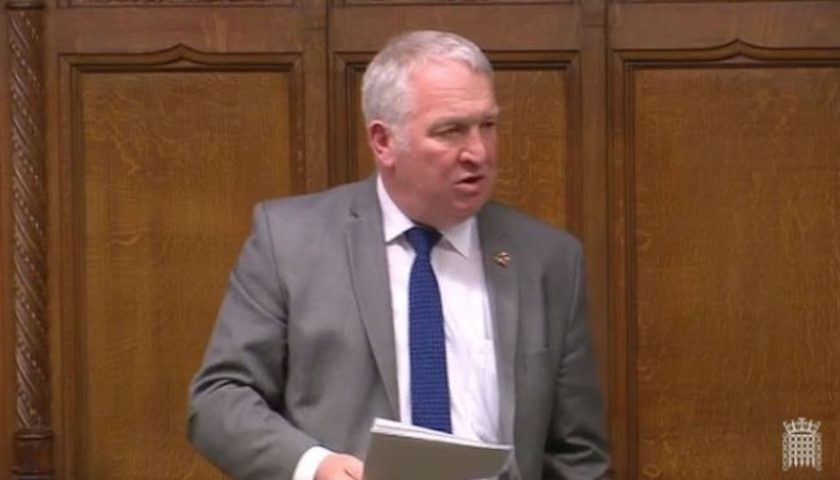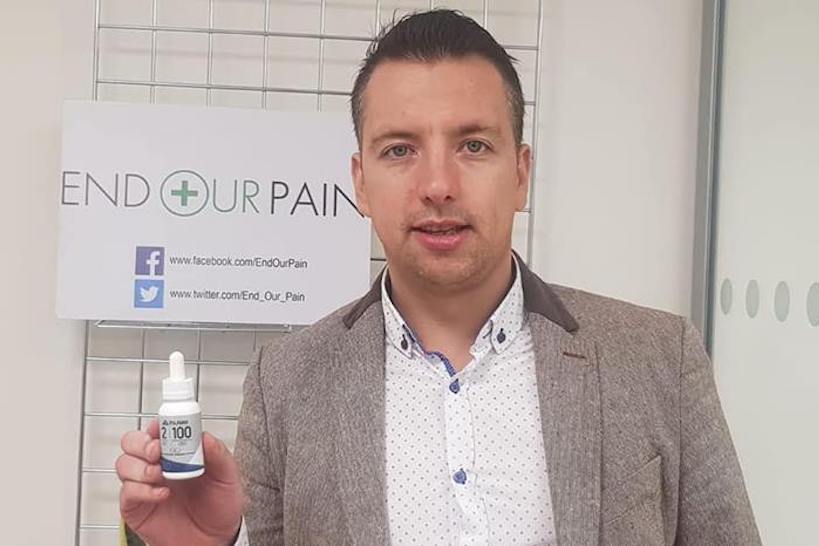The all-party parliamentary group for medical cannabis has condemned the workings of the new cannabis medicine licensing regime after the family of Jorja Emerson finally got their hands on her prescription, having been forced to raise huge sums of money to secure it through a private hospital.
Two-year-old Jorja suffers from a rare form of epilepsy and life-threatening seizures. She has been treated with a number of heavily sedative pharmaceutical drugs that consultants have said are causing long-lasting damaging side effects.
Her father Robin (pictured) said that securing the prescription had been “an assault course of bureaucracy ”.
“I have faced near-total opposition in my quest to get my daughter access to a medicine that is now legal in the UK and has been shown to work in similar cases. No family should have to endure what we have been through.
“Thanks to the generosity of friends and supporters I have managed to raise enough money to fund the first few months of the medicine. But at £833.75 per month I face a desperately difficult future.”
He added on Facebook that “this week MPs will be asking the Prime Minister to step in and have the NHS honour Jorja’s prescriptions going forwards – having been forced to go private, this situation is not a long term solution.”
The Emersons secured the prescription through a neurologist at Portland Hospital in London. But they were then told it would take “weeks or months” to get hold of because no pharmacy had the licence to sell it. Thankfully, has now arrived.
On Monday, Mike Penning MP, co-chair of the parliamentary group for medical cannabis, lambasted the “serious cultural block within the NHS around medical cannabis”.
“For Jorja and her family this is a great day and I commend the private consultant, supported by her private hospital, who has taken the courageous decision to prescribe a medical cannabis product which she genuinely feels is in the best interest of her patient.
“Other families, many with children just as seriously ill as Jorja, continue to face a complete block from their NHS medical teams.”
He pointed out that most families did not have the means to go private, and in any case “the number of even private clinicians willing to prescribe appears to be in low single figures”.

“I do not believe that this is what the Prime Minister and Home Secretary envisaged when they made the bold change in the law on 1 November to reschedule medical cannabis to enable consultants to prescribe it,” he added.
Calling for action from the highest levels of government to rectify a system that was “letting patients down”, co-chair Tonia Antoniazzi MP said: “The high-profile cases over the summer of Alfie Dingley and others clearly show that for some epileptic children medical cannabis containing low concentrations of THC [tetrahydrocannabinol] can be life-transforming.
“Denying parents the right for their children to try these newly available medicines is cruel. It appears that the medical profession is totally wedded to only prescribing a substance for which there is double-blind trial evidence. But there is a need for a common-sense perspective here.”
She added that many severely epileptic children were treated with conventional anti-epileptic drugs that had passed such trials, yet had severe side effects.
“To our knowledge, no one has ever died from taking THC, and in any case the concentrations that we are talking about in these medicines are very low,” she said.




